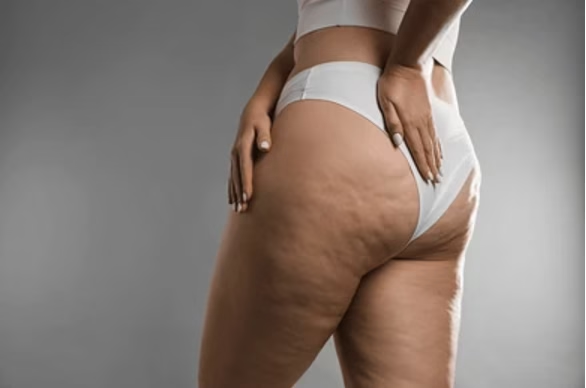Brazilian Butt Lift (BBL) has gained immense popularity over the years as a cosmetic procedure designed to enhance the shape and size of the buttocks. This procedure involves liposuction to remove excess fat from areas like the abdomen, thighs, or flanks, which is then purified and injected into the buttocks to create a fuller, more sculpted appearance. Many people are drawn to BBL for its natural-looking results, but post-procedure care is just as important as the surgery itself. One of the primary concerns after undergoing a BBL is how weight gain affects the overall outcome of the procedure.
Dr. Viral Desai emphasizes that post-operative care, including maintaining a stable weight, plays a crucial role in ensuring the long-term success of the surgery. “Weight gain after BBL can distort the results, and it’s essential to follow a healthy lifestyle to maintain the enhanced contours,” explains Dr. Desai.
Dr. Viral Desai is an acclaimed plastic and cosmetic surgeon in Mumbai, recognized for his expertise in body contouring and reconstructive procedures. With years of experience and a reputation for delivering exceptional results, Dr. Desai is highly sought after by patients seeking a transformation. His approach is patient-centric, with a focus on natural aesthetics and long-term results.
Let’s dive into how gaining weight after BBL impacts the shape and definition of your enhanced buttocks.
How Weight Gain Affects BBL Results

Once you’ve had a BBL, it’s very important to pay attention to weight gain as this may have a direct impact on the outcome of the procedure. Weight gain following a BBL may result in uneven growth for the body. Though the transferred fats into the buttocks are not expected to leave for the long term, gaining a lot of weight may result in the fattening of the buttocks’ fat cells, which may undo the desired sculpting and result in a less prominent shape.
Weight gain may also extend to other parts of the body, such as the thighs, arms, and abdomen, which can cause a disproportionate imbalance. As the deposits of fat bulge up in these areas while those around the buttocks increase in size, a less proportional body shape may result. Dr. Viral Desai advises his patients to maintain a consistent weight after BBL to preserve the natural contour and fullness achieved through the procedure.
Experiencing weight changes after BBL? Connect with a professional to discuss effective strategies to maintain your results.
Not clear how short- and long-term weight fluctuations vary? Let us discuss how each affects your BBL in the long term.
Short-Term vs. Long-Term Weight Changes
In terms of weight gain after BBL, short- and long-term factors each play a part. In the initial months after surgery, a slight change in weight may occur as the body adjusts to the movement of the transferred fat. At this stage, the transferred fat might firm up into place or get expelled from the system, creating minor fluctuations in the appearance of the buttocks.
However, long-term weight alterations can have more significant consequences. Slow but steady weight gain over time may result in the buttocks becoming less prominent and the shape less lifted. The best way to ensure optimal long-term result maintenance from a BBL procedure is to refrain from drastic weight gains or losses, as these may result in undesirable body proportion alterations.
Worried about potentially gaining too much weight after your BBL? Let’s talk about how it would impact your body and appearance.
Potential Risks of Gaining Too Much Weight After BBL
- Abnormal Shape of the Buttock: Excessive weight gain could potentially result in the implanted fat cells from the procedure increasing in size, which may lead to a less defined and more aged appearance.
- Imbalanced Proportions of the Body: Other weight increases (such as the abdomen, thighs, or arms) can result in an uneven body shape, which can impact the overall aesthetic look derived from a BBL.
- Skin Laxity and Stretch Marks: It may cause the skin to sag or develop stretch marks more quickly, especially in areas where liposuction or fat injections have been administered.
- Transferred Fat Reabsorption: The body can also reabsorb the additional fat cells, reducing the shape and volume of the buttocks, possibly producing less aesthetically pleasing outcomes.
- Compromised Surgical Results: Excessive weight gain can also compromise the precision of the procedure, thereby diminishing the long-term results initially achieved.
- Health Implications: Being overweight can trigger health consequences, such as a heightened risk for heart disease, high blood pressure, and joint pain.
Let us learn how weight consistency after a BBL matters for long term results.
Why Weight Stability is Important

The stability of weight following the BBL is also highly significant for several reasons. The first reason for stability is to maintain the body’s proportion, as well as the shape of the fat cells in the buttocks. Weight gain and reductions may lead to the uneven redistribution of fats, potentially compromising the desired aesthetic shape of the buttocks.
Second, stability of the weight ensures long-term health. Extreme fluctuation of the weight could place the body into undue stress and perpetuate potential problems, including loose skin or an inability to maintain a balanced shape. Dr. Viral Desai, a renowned plastic surgeon in Mumbai, advises that, for optimal results, patients should focus on adopting a healthy lifestyle that includes regular exercise and proper nutrition to support stable weight management.
Conclusion
Weight gain after BBL is a significant factor that can influence the final results of your procedure. While some weight fluctuations are natural, maintaining a stable weight over the long term is vital for preserving the shape and volume of your buttocks. By being mindful of your weight and adopting a healthy lifestyle, you can ensure that your BBL results remain flattering and long-lasting. For personalized advice, consult with a specialist, such as Dr. Viral Desai, who can guide you in achieving and maintaining the best possible outcome after your procedure.
Want to make sure your BBL results stay intact? Get in touch with an expert to learn how to maintain your ideal weight.
Frequently Asked Questions
How long after BBL can I start gaining weight?
It’s ideal to achieve a stable weight within the first 6-12 months after surgery so the buttock fat cells may position well.
What happens if I gain too much weight after BBL?
It may alter the shape of your buttocks in addition to the proportional makeup of your body.
Will the transferred fat shrink if I further gain weight?
Transferred fat can bulge out due to weight gain, but it can also shrink once you reduce your weight later.
How can I maintain my BBL results?
Maintaining a healthy lifestyle, including regular exercise and a balanced diet, is crucial for preserving BBL results.
When will I see the final results of my BBL?
Full results are typically visible 6-12 months after surgery, once the fat has settled.
Disclaimer: The information shared in this content is for educational purposes only and not for promotional use.


